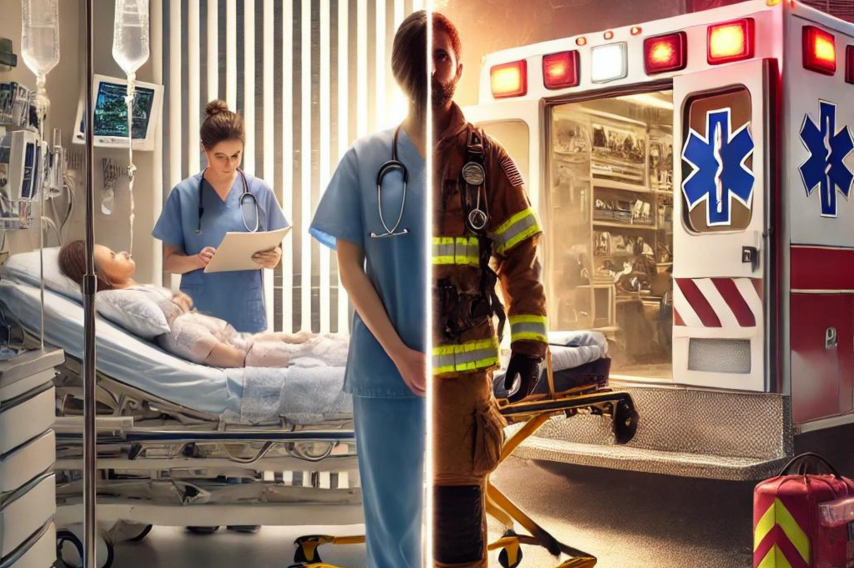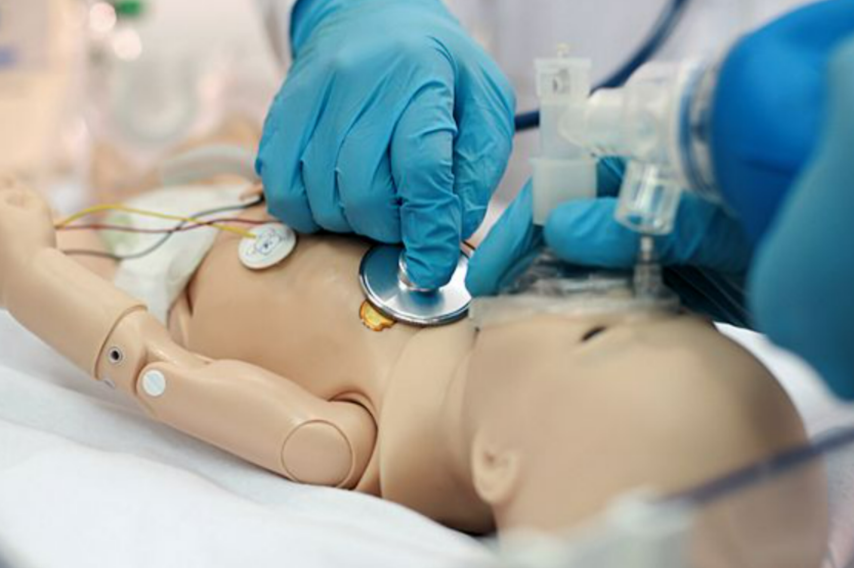Address
Abu Dhabi University Tower
Al Nahyan - E25 - Abu Dhabi - United Arab Emirates
Work Hours
Monday to Friday: 7AM - 7PM
Weekend: 10AM - 5PM
Story video
Course Overview
The Heart Saver First Aid CPR AED Provider course is designed to equip participants with the essential skills to respond to first aid emergencies, including cardiac arrest, choking, and other life-threatening situations. This course covers the basics of first aid, cardiopulmonary resuscitation (CPR), and the use of automated external defibrillators (AED) for adult, child, and infant patients.
Learning Objectives
By the end of this course, participants will be able to:
Target Audience
This course is ideal for anyone with little or no medical training who needs to be prepared to respond to first aid emergencies, such as teachers, fitness trainers, lifeguards, and childcare providers.
Prerequisites

Course Overview
The Basic Life Support (BLS) Provider course is designed for healthcare professionals and others who need to know how to perform CPR and other basic cardiovascular life support skills in a wide variety of in-facility and pre-hospital settings.
Learning Objectives
By the end of this course, participants will be able to:
Target Audience
This course is intended for healthcare providers, including doctors, nurses, paramedics, and other medical personnel.
Prerequisites
No prerequisites, though a basic understanding of emergency response is beneficial.
Course Content
Course Format
This course is conducted in-person with a combination of lectures, hands-on practice, and scenario-based training.
Duration:
Materials Provided:
Course manual and online access to additional

Course Overview
The RN to EMT Transition Program is specifically designed for Registered Nurses seeking to expand their skills and knowledge in pre-hospital emergency care. This program bridges existing nursing competencies with the essential skills required for Emergency Medical Technicians, enabling RNs to effectively function in emergency
medical services (EMS) settings. Participants will gain hands-on experience and comprehensive understanding of emergency response protocols, patient assessment, and critical interventions in out-of-hospital environments.
Learning Objectives
By the end of this course, participants will be able to:
Target Audience
Registered Nurse(RN) license must be in good standing with a minimum of work experience in the last 2 years in Ambulance, ER, ICU/CCU.
Prerequisites
Course Format
Program will be completed onsite in the classroom. Courses are comprised of lecture and lab instruction. Some online coursework is also required, which is performed offsite. To successfully meet course completion requirements, be prepared to commit extra time outside of the classroom.
Part One: Online
Part Two: Face to Face
Part Three: Simulation skills (indoor and outdoor)
Duration:
Approximately 4-6 hours, including skills practice and assessment.
Assessment and Certification:
Participants will be assessed through practical skills tests. Upon successful completion, they will receive a Heart Saver First Aid CPR AED certification, valid for 2 years.
Materials Provided:
Participants will receive a course manual and access to online resources for further study.

Course Overview
The Emergency Medical Technician course prepares the EMT student to provide prehospital assessment and care for patients of all ages with a variety of medical conditions and traumatic injuries. Areas of study include an introduction to emergency medical services systems, roles and responsibilities of EMTs, anatomy and physiology, medical emergencies, trauma, special considerations for working in the prehospital setting, and providing patient transportation.
Learning Objectives
By the end of this course, participants will be able to:
Target Audience
This course is ideal for anyone with little or no medical training who needs to be prepared to respond to first aid emergencies, such as teachers, fitness trainers, lifeguards, and childcare providers.
Prerequisites
Course Content
Course Format
This course is conducted in-person with a combination of lectures, hands-on practice, and scenario-based training.
Duration:
Approximately 4-6 hours, including skills practice and assessment.
Assessment and Certification:
Participants will be assessed through practical skills tests. Upon successful completion, they will receive a Heart Saver First Aid CPR AED certification, valid for 2 years.
Materials Provided:
Participants will receive a course manual and access to online resources for further study.

Course Overview
The Advanced Cardiac Life Support (ACLS) Provider course builds on the foundation of Basic Life Support (BLS) skills, emphasizing the importance of team dynamics, communication, systems of care, and immediate post-cardiac-arrest care. This course covers advanced cardiovascular life support skills, including management of cardiac arrest, acute dysrhythmia, stroke, and acute coronary syndromes.
Learning Objectives
By the end of this course, participants will be able to:
Target Audience
This course is designed for healthcare professionals involved in the management of cardiopulmonary emergencies, including physicians,
nurses, paramedics, and respiratory therapists.
Prerequisites
Current BLS certification is required. Prior knowledge of ECG interpretation and pharmacology is recommended.
Course Content:
Course Format
This is a blended course with online pre-course self-study followed by an in-person session that includes lectures, hands-on practice, and simulated scenarios.
Duration:
Approximately 10-12 hours, including online modules and in-person assessment.
Assessment and Certification:
Participants will be assessed through written and practical exams. Upon successful completion, they will receive an ACLS Provider certification, valid for 2 years.
Materials Provided:
Course manual, online resources, and access to pre-course self-study materials.

Course Overview
The Pediatric Advanced Cardiac Life Support (PALS) Provider course is
designed to prepare healthcare providers to respond to emergencies in infants and children. This course focuses on pediatric assessment, effective resuscitation, and teamwork in managing respiratory emergencies, shock, and cardiac arrest in pediatric patients.
Learning Objectives
By the end of this course, participants will be able to:
Target Audience
This course is intended for healthcare professionals who manage pediatric emergencies, including pediatricians, emergency physicians, nurses, and paramedics.
Prerequisites
Current BLS certification is required. A basic understanding of pediatric care is recommended.
Course Content
Course Format
This course includes online pre-course work followed by an in-person session with lectures, hands-on practice, and scenario-based training.
Duration:
Approximately 10-12 hours, including online modules and in-person assessment.
Assessment and Certification:
Participants will be assessed through written and practical exams. Successful participants will receive a PALS Provider certification, valid for 2 years.
Materials Provided:
Course manual, access to online resources, and pre-course self-study materials.

